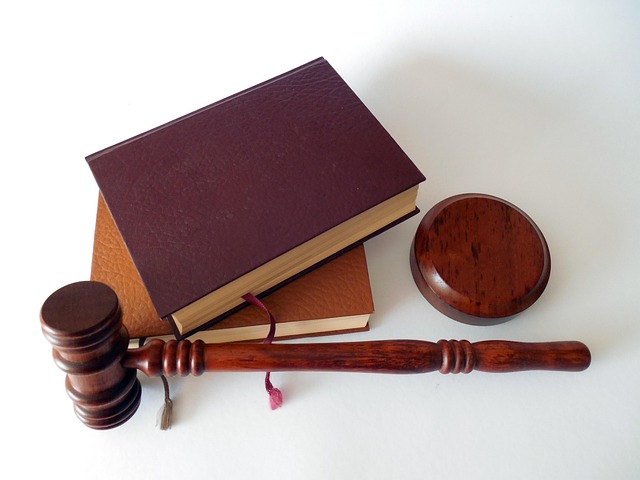Healthcare Law Firms play a critical role in personal injury cases arising from medical negligence, guiding clients through multi-step lawsuit processes. Their expertise encompasses initial case assessments, gathering medical records, and expert reviews to establish liability. They ensure clients' rights are protected during investigations, filing claims, and pursuing high-stakes cases for substantial compensation or avoiding indictment. The process involves several key steps: initial consultation, filing a complaint, discovery (evidence exchange), strategy development, and negotiation/trial. Skilled attorneys balance client interests with legal complexities, employing white-collar defense strategies to achieve favorable outcomes in medical malpractice disputes while maintaining confidentiality.
In the intricate landscape of healthcare law, specialized firms play a pivotal role in personal injury cases. These experts guide clients through the complex web of medical negligence claims, ensuring justice and compensation. This article delves into the core functions of healthcare law firms, offering a comprehensive guide on the steps involved in a personal injury lawsuit. From initial claim assessment to final resolution, we explore the legal process, rights, and responsibilities, providing insights crucial for both clients and lawyers navigating this intricate domain.
- Understanding Healthcare Law Firms and Their Role in Personal Injury Cases
- Steps Involved in a Personal Injury Lawsuit: A Comprehensive Guide
- The Legal Process: From Claim to Resolution
- Navigating the Complexities: Rights and Responsibilities of Clients and Lawyers
Understanding Healthcare Law Firms and Their Role in Personal Injury Cases

Healthcare Law Firms specialize in navigating complex legal landscapes within the medical industry. Their expertise is invaluable in personal injury cases stemming from medical negligence or malpractice. These firms guide clients through the intricate steps involved, which often include an initial assessment of the case, gathering medical records, and conducting expert reviews to determine liability.
By understanding the intricacies of both healthcare and law, these professionals can effectively represent individuals harmed by substandard medical care. They ensure that clients’ rights are protected throughout all stages of the investigative and enforcement process, from filing a claim to potential high-stakes cases where substantial compensation may be sought to avoid indictment for negligence. Their role is pivotal in securing justice and fair settlements for those affected by medical mishaps.
Steps Involved in a Personal Injury Lawsuit: A Comprehensive Guide

A personal injury lawsuit involves a multi-step process designed to ensure justice and fair compensation for harm suffered by an individual due to another party’s negligence or intentional actions. The journey begins with a thorough assessment of the incident, where details such as circumstances, extent of injuries, and responsible parties are documented. This critical phase is crucial in building a strong case.
Next, a victim will consult with a legal professional specializing in personal injury law, who will advise on the respective business and best course of action. The lawyer will gather evidence, interview witnesses, and formulate a solid strategy. If negotiations with the at-fault party or their insurance provider fail to reach an agreeable settlement, the case progresses to filing a lawsuit with the court. An unprecedented track record of successful outcomes for his clients is often a key factor in choosing a legal representative.
The Legal Process: From Claim to Resolution

The legal process involved in healthcare law firms, especially for personal injury lawsuits, is a carefully structured series of steps designed to ensure justice and fair compensation for victims. It begins with an initial consultation where clients discuss their case details with attorneys who assess the merit and potential of the claim. This crucial step is essential for setting expectations and understanding the legal landscape ahead.
Following this, if the attorney accepts the case, they’ll file a complaint against the negligent party or parties. The next phase involves extensive discovery, where both sides gather and exchange evidence, including medical records, expert opinions, and witness statements. This meticulous process is vital to building a strong case. High-stakes cases often require sophisticated strategies and in-depth knowledge of legal complexities. Skilled attorneys focus on achieving extraordinary results for their clients while also emphasizing the importance of avoiding indictment in sensitive healthcare matters.
Navigating the Complexities: Rights and Responsibilities of Clients and Lawyers

Navigating the complexities of healthcare law involves a delicate balance between client rights and lawyer responsibilities. In the case of personal injury lawsuits, clients must be aware of their entitlements while lawyers bear the burden of ensuring justice is served. The steps in a personal injury lawsuit process, such as investigation, filing a claim, and negotiation or trial, require clear communication and adherence to legal protocols.
Lawyers play a pivotal role in protecting clients’ interests by upholding ethical standards and advocating for their rights. This includes managing expectations, providing expert guidance, and navigating the intricate regulatory landscape of healthcare. With an unprecedented track record across the country, white-collar defense strategies are often employed to mitigate risks and achieve favorable outcomes for clients involved in medical malpractice or other healthcare-related disputes.
Healthcare law firms play a pivotal role in personal injury cases, guiding clients through the intricate legal process. By understanding the steps involved in a personal injury lawsuit, from claim filing to resolution, individuals can assert their rights effectively. This comprehensive guide highlights the legal process and the complex interplay between clients and lawyers, ensuring informed decision-making and a clearer path toward justice. The journey may be challenging, but with the right support, victims can navigate these complexities and secure the compensation they deserve through the Steps in a Personal Injury Lawsuit Process.






